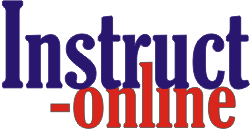
 Phone
(319) 626-2302
Phone
(319) 626-2302
Catalog Number : ngd1138
Title : Safe Medication in Your Hospital - Part 3: CMS Hospital Condition of Participation, Joint Commission Tracers, Medication Reconciliation, & Tips for Reducing Errors
Speaker : Sue Dill
Webplay Recording Date : 10-10-2006
Webplay Price : $ 225 for two weeks viewing
Webinar Overview-General:
Medication errors are the most common
type of medical error. A recent IOM report estimated that a hospital patient is subject to
one medication error per day with considerable variation in rate across facilities. This
program will cover areas of interest to healthcare practitioners striving to reduce
medications errors. Healthcare facilities in all settings should seek to create high
reliability organizations that constantly improve the safety and quality of medication
use.
Who Should Attend:
This program is for anyone involved in
the medication process or who is interested in reducing medication errors in health care,
especially pharmacists, physicians, nurse educators and nurses, risk managers, hospital
attorneys, compliance officers, and quality and performance improvement coordinator, chief
nursing officer, patient safety officer, Joint Commission coordinator, nurse managers,
pharmacy staff, policy and procedure committee members, case managers, nurse supervisors,
medication team members, patient safety committee members and others who participate in
the medication process should attend.
Safe Medication in Your Hospital
for 2008- Part 1: The Cost, The Frequency, The Contributing Factors And The Impact Of
Medical Errors – Your Hospital Has One Medication Error Per Day!!
The following are only a few of the topics to be discussed:
- Introduction
- Reducing Medications Errors
- Preventing Medication Errors
- IOM 2006 Study of Medication Errors
- Medication Errors Top Issue for TJC
- NCC MERP Index for Medication Errors
Categories
- Extrapolation of These Results
- How Are Medication Errors Detected?
- Medication Errors and Patient Safety Culture
- How Frequently Do Medication Errors Occur?
- Adverse Drug Event Study
- Categories of Medication Errors
- Leading Causes of Medication Errors for seniors
- Types of Medication Errors
- 10 keys elements of medication use safety
- TJC Medication Errors
- TJC Medication Management Tracer
- Documentation of Medication Errors
- Prescription Medication Errors
- IV Medication Errors
- Hospital verses Physician Office Medication Errors
- FMEA on Medication Errors
- Incident Reports Medication Errors
- Systems Analysis of ADE
- Frequency Medication Errors by Drug Class
- Location Where Medication Errors Occur
- Preventable & Non-Preventable Medication Errors
- Stages Where Medication Errors Occur
Learning Objectives Include:
- Explain contributing factors that lead to medication errors
- Relate the impact of medical errors
- Discuss the findings of the 2006 IOM Preventing Medication Errors report including the finding that the average hospital patient has one medication error per day
Safe Medication in Your Hospital
for 2008- Part 2: Why Med Errors Occur? - Staffing Levels, Stages, Common Drugs,
Documentation
The following are only a few of the topics to be discussed:
- Trigger Tools
- Beers list of Inappropriate Meds
- Drugs with Potentially Interactions
- CMS CoPs for Hospitals
- TJC Matrix Medication Errors
- TJC Patient Safety Goals
- TJC Medication Standards
- Involve Patient in Preventing Error
- Nursing Linked to Safety
- Drug Shortages
- Psychotropic Medications
- Self-Care - Take as Directed
- Provider Patient Communication
- Speak Up: Help Prevent Errors in Your Care
- NCP VA National Safety for Patient Safety
- CMS Hospital CoPs 2008
- Preparation/Admin of Drugs
- Administration of Meds 0209
- Written Order for Drugs 0210
- Verbal Orders
- Blood Transfusions and IVs
- Pharmacy Policies Include:
- Pharmacy A-0247
- Pharmacy Management 0248
- Pharmacy Delivery of Service A-0252
- Locked storage areas A-254
- No Pharmacist on Duty A-0256
- Automatic Stop Orders A-0257
- Medications Errors A-0258
- Drug Interaction Information
- TJC Self-Administered Meds MM 5.20
- Outdated or Mislabeled Drugs
Learning Objectives Include:
- Recall at least two tips to reduce medication errors
- Interpret regulatory standards related to safe medication use
Safe Medication in Your Hospital
for 2008- Part 3: CMS Hospital CoPs, Joint Commission Tracers, Medication Reconciliation,
and Tips for Reducing Errors
The following are only a few of the topics to be discussed:
- 2008 TJC National Patient Safety
Goals:
- Improve the Accuracy of Patient Identification
- Improve the Effectiveness of Communication Among Caregivers
- Do Not Use Abbreviations
- ISMP and FDA Abbreviation Improve the Safety of Using Medications (Not High Risk Meds)
- High Alert Medications
- Sound-alike/Look-alike Drugs
- Label All Medications New 3D
- Reconciling Medications
- Reduce Risk of Flu/Pneumonia-Not Hospitals
- Standing Orders
- Preventing Computer Errors
- Automated Dispensing Devices
- Override Criteria
- Sample Medications
- Chemotherapy
- Medication Labeling
- Tips to Reduce Med Error
- Safe Electronic Communication of Medication Orders
- TJC Medication Management Standards
- 2008:
- 1.10 Patient Specific Information
- 1.10 - 3 Elements of Performance
- 2.10 Selection and Procurement
- 2.20 Storage
- 2.30 Crash cart standard
- 2.40 Meds from Home
- 3.10 Ordering/Transcribing
- 3.20 Ordering/Transcribing
- 4.10 Preparing and Dispensing
- 4.20 Medication Preparation
- 4.30 Medication Labeling
- 4.40 Dispensing
- 4.50 Pharmacy Closed
- 4.70 Recall
- 4.80 Returning meds to pharmacy
- 5.10 Administering
- 5.20 Self - Administered Meds
- 6.10 Monitoring Meds
- 6.20 ADE/Med Errors
- 7.10 High Risk Medications
- 7.40 Investigational Drugs
- 8.10 Evaluation
- Policy on High Alert Medications
- Proposed 2007 Changes
Learning Objectives Include:
- Describe the standards facilities must implement to handle medication error occurrences
- Review the policies on high alert medications
- Review the proposed 2007 changes
The cost for each Webinar is just $295 per phone connection.
Participants: Instruct-online has approved this program for 2.4 Contact hours, Iowa Board of Nursing Approved Provider Number 339. There is usually a reciprocal agreement between state associations to allow these to count for each state. If you have any questions, please ask your state association.
Refund Policy:
Full tuition is refunded immediately on request if the participant has not been sent the program materials and instructions. Once the instructions (including access codes) have been sent, a full refund will be issued only after the program runs and it is verified that the participant did not access the program
.